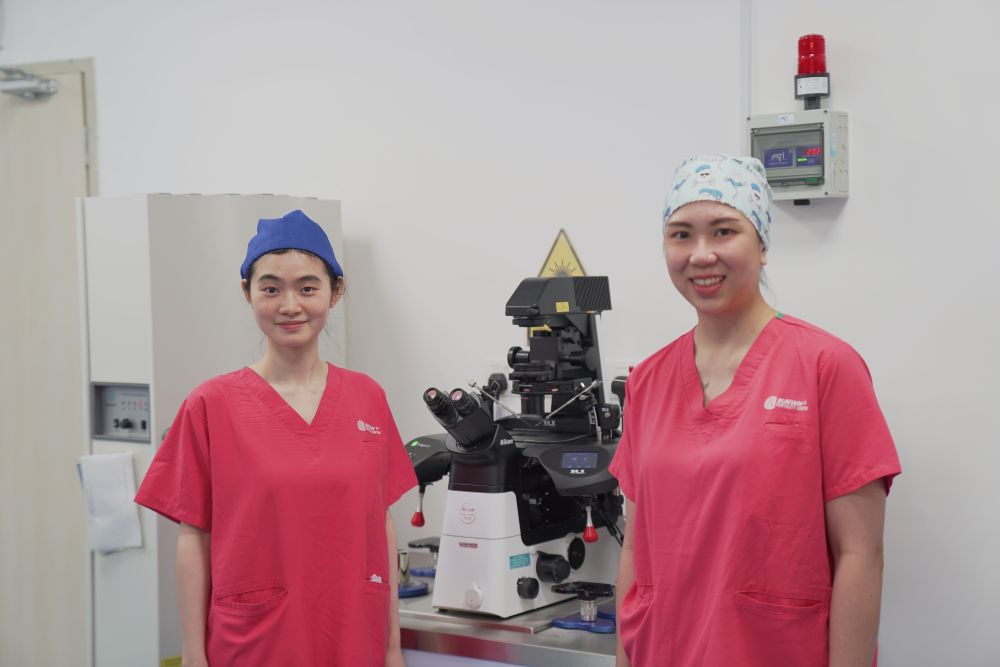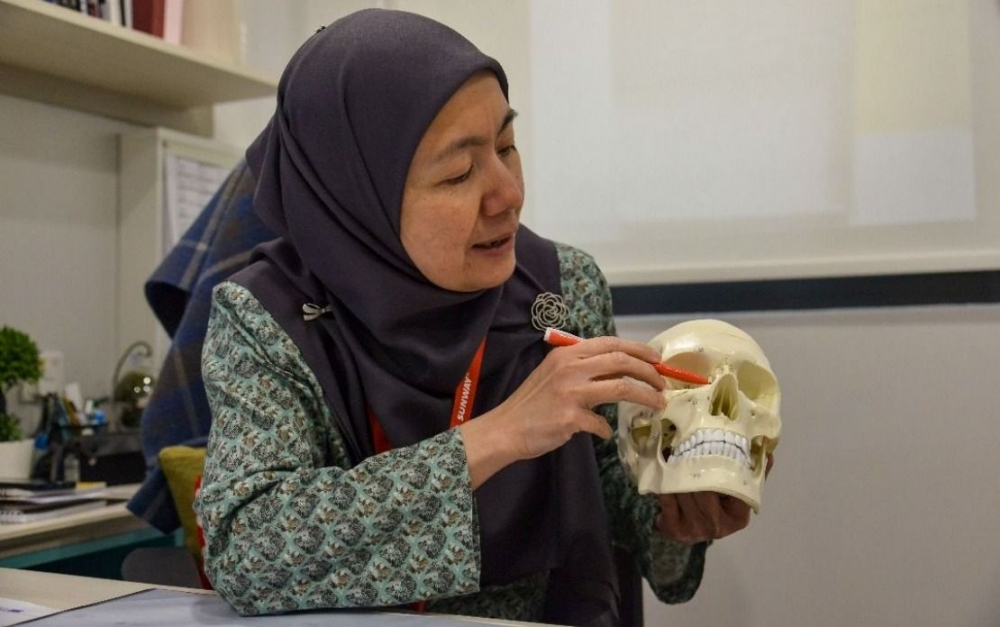Beyond the Microscope: A Day in the Life of an Embryologist

25 July marks both World Embryology Day and World IVF Day — a celebration of the medical breakthroughs that have made parenthood possible for millions, and the quiet professionals who help make it happen.
At Sunway Medical Centre Velocity, embryologists like Pearl play a crucial yet often invisible role in IVF (in vitro fertilisation). They are the experts who nurture and protect the earliest stages of life — with care, precision, and deep commitment.
If you’re planning for pregnancy or considering IVF, understanding the work of an embryologist might just help you feel more confident, more informed, and more hopeful.
What Happens Inside the IVF Lab?
To the outside world, an IVF lab may seem like a quiet, sterile place filled with microscopes and incubators. But inside, something extraordinary happens every single day.
The process begins when a patient takes hormone medications to stimulate the ovaries to produce multiple eggs. Once the eggs are ready, a final "trigger shot" prepares the body for egg retrieval. On that day, the patient is sedated while the doctor collects fluid from the ovaries. That fluid is passed to us, the embryologists — and our job is to find the precious eggs.
Meanwhile, the male partner provides a fresh sperm sample. We wash and process it, isolating only the healthiest, most motile sperm.
A few hours later, we gently remove the surrounding cells from the eggs to check for maturity. Mature eggs are then fertilised through a process called ICSI, where one healthy sperm is injected directly into each egg. This is especially helpful for couples with sperm-related fertility issues.
After ICSI, the eggs are placed into a special incubator that mimics the environment of the human body. We monitor their development closely — and by the next day, we’ll know if fertilisation has occurred. By day five or six, the healthiest embryos (called blastocysts) are either transferred into the uterus or frozen for future use.
IVF Technology Today
Embryology is always evolving, and we’re lucky to work with some of the most advanced technologies in fertility care.
Time-Lapse Incubator
With this, we no longer need to remove embryos from the incubator to observe them. These devices include cameras that capture continuous footage of embryo development, helping us monitor cell division in real-time without disturbance. This footage supports decision-making and also helps explain development to doctors — and sometimes, to hopeful parents eager to know what’s happening behind the scenes.
IMSI (Intracytoplasmic Morphologically Selected Sperm Injection)
An advanced version of ICSI, IMSI uses a microscope with up to 10,000x magnification — far beyond the usual 400x. This allows us to identify even the tiniest defects in sperm structure. By selecting the healthiest-looking sperm, we increase the chances of fertilisation and embryo quality.
Thanks to innovations like these, IVF today is more precise, personalised, and effective than ever before. Cryopreservation has also improved significantly, giving patients greater flexibility to plan for the future.
The Emotional Weight of the Work
Embryology is a science — but also a deeply emotional field. While success stories bring joy, the challenges are very real.
There are tough days when an embryo stops developing, and no one knows why. Sometimes, despite our best efforts, no blastocysts form. We’re often the silent bearers of difficult news, managing our own disappointment while supporting patients through theirs.
Ethical dilemmas are part of our work too — like deciding whether to discard embryos based on morphology, or whether a low-risk mosaic embryo should be considered for transfer. These decisions don’t have easy answers, and they stay with us long after the lab doors close.
Still, the emotional highs are powerful. A positive pregnancy result, a thank-you message months later, or a baby photo sent by a grateful family — these quiet moments make everything worth it.
The emotional toll is real, and burnout is something many of us face. But what keeps us going is the privilege of being part of something so meaningful. We help create hope.
The Best Part of the Job
Being an embryologist is a unique blend of science, skill, and compassion. The most rewarding part? Playing a role in helping people become parents — and witnessing the incredible stories that unfold from a single cell.
Behind every embryo is a story of resilience, love, and determination. These cells are more than biology — they carry the dreams of families who’ve waited, sometimes for years, to have a child. Being entrusted with something so precious is both humbling and inspiring.
Hearing that a patient is pregnant, knowing our careful work contributed — that’s the moment we remember why we do this. We’re constantly learning and growing alongside medical science, always working to improve success rates and care. But at the heart of it, this job is about people — about helping create families and giving hope where it’s needed most.
For Parents Considering IVF
If you’re thinking about IVF, know that you’re not alone. This journey comes with a range of emotions and many decisions, but it also holds incredible hope.
As embryologists, we may work behind the scenes, but we care for your embryos as if they were our own. IVF is more than a procedure — it’s a partnership between you and a dedicated team. The medications, appointments, and uncertainties can be overwhelming, so please lean on your support system and be kind to yourself.
Remember, every journey is unique. Age, health, and fertility challenges all play a role, but with scientific progress and the care of your team, there’s real reason for hope.
Trust the process. Trust your team. And above all, trust yourself. We’re here, walking this path with you, every step of the way.
Thinking of Joining This Field?
If you’re considering a career in embryology, know that this field is more than science — it’s about compassion, responsibility, and deep human connection.
Embryologists work quietly behind the scenes, handling eggs, sperm, and embryos with extreme care. The work is hands-on, emotionally intense, and often done during odd hours — but it’s also incredibly fulfilling.
You’ll need sharp skills, steady hands, and empathy. You may never meet the people whose lives you touch — but you’ll feel the impact of your work in profound ways. If you love biology and want to make a real difference, embryology could be the most meaningful career you ever pursue.
A Final Thought for Hopeful Parents

To all the hopeful parents reading this: don’t give up. We know how tough this journey can be. But even in the most uncertain moments, there is always hope.
Behind every scan, every transfer, every moment of waiting — there’s a team cheering for you. We’ve seen miracles happen when they were least expected. So keep believing in your journey. It’s not over yet — your story is still unfolding, and beautiful chapters may be just ahead.
这篇文章对您有帮助吗?
有0 位用户在 0 位中觉得这很有帮助。
Suggest to Read









